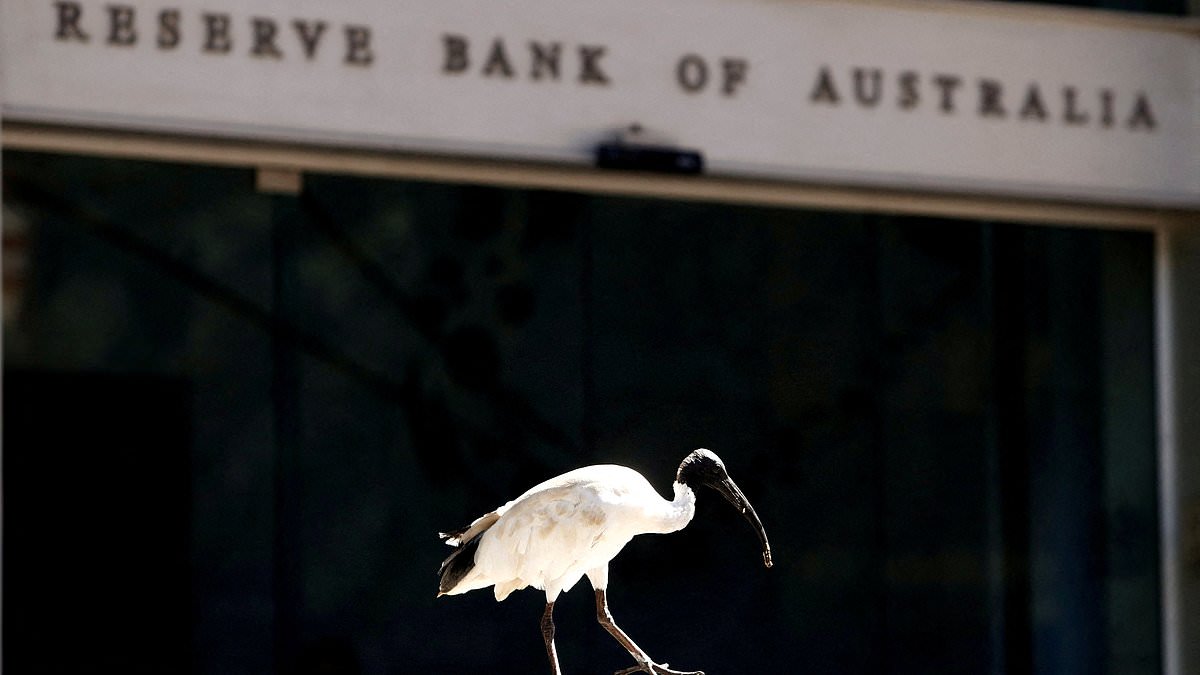The Reserve Bank board did not consider the case for an additional increase to interest rates at its latest decision, opting instead to keep the cash rate on hold at 4.35 per cent, minutes of its March 18-19 board meeting have revealed.
The RBA has canvassed hiking interest rates at every meeting since the central bank commenced its run of 13 rate hikes in May 2022, however March’s meeting marked the first time the central bank has axed the option.
Even still, board members said the risks to the economic outlook had become ‘a little more even’ and claimed ‘it was appropriate to characterise the policy outlook as one in which it was difficult to either rule in or out future changes in the cash rate target,’ the minutes said.

The Reserve Bank board did not consider the case for an additional increase to interest rates at its latest decision
Most economists and investors expect the RBA’s next move will be a cut, with money markets fully priced for a 25 basis point easing in the cash rate at the RBA’s September 23-24 board meeting.
‘Members observed that inflation had continued to moderate over prior months, broadly as expected,’ the minutes noted.
‘That said, services inflation remained high and the recent slowing in the pace of monthly inflation had been influenced by several temporary factors.’
The RBA forecasts inflation, currently 3.4 per cent on its most recent measure, will fall within its 2 to 3 per cent target band by December 2025.
Board members also pointed to the fact that the path of disinflation in other countries ‘had not been smooth,’ which ‘could hold lessons for .’
Bringing inflation back to target ‘remained the board’s highest priority’, but the board admitted it would ‘take some time before they could have sufficient confidence that this would occur within a reasonable timeframe’.
‘At the same time, members noted the importance of preserving as many of the gains in the labour market as possible.
‘In light of these assessments, members agreed that leaving the cash rate target unchanged at this meeting was the best way to achieve the Board’s strategy of supporting a gradual return of inflation to target and the labour market to full employment.’
Commonwealth Bank head of n economics Gareth Aird, who expects the RBA will cut interest rates at its final three board meetings of 2024, remarked that March’s meeting minutes were ‘the most dovish piece of communication from the board since the RBA commenced its tightening cycle’.
‘The board is becoming increasingly confident that the battle to return inflation to target is being won,’ Mr Aird said.
‘Behind closed doors (the board) will view the likely next move in the cash rate as down, but it is too early for the board to shift to an easing bias.’
However, even as the minutes showed a softening in the bank’s rhetoric, Capital Economics head of Asia Pacific Marcel Thieliant said rate cuts remained unlikely until later this year.
‘During previous easing cycles the bank lowered interest rates only after discussing rate cuts for several months.’ Mr Thieliant said.
‘We expect the RBA to become the last major central bank to start loosening monetary policy and only expect the first rate cut to come in November.’
The minutes also detailed how households were faring under the weight of ‘restrictive’ financial conditions.

The RBA has canvassed hiking interest rates at every meeting since the central bank commenced its run of 13 rate hikes in May 2022, however March’s meeting marked the first time the central bank has axed the option. RBA governor Michele Bullock is pictured
‘The tightening in monetary policy had induced a significant rise in scheduled household debt payments. These were expected to rise a little further in 2024 as additional fixed-rate loans rolled onto higher rates,’ the minutes read.
Housing credit growth remained low and payments into offset accounts had risen since mid-2023, the minutes detailed, with low income and less-affluent households most acutely affected.
‘As a result, the average housing deposit had increased at a faster rate than housing prices, and newer borrowers had higher incomes and lower loan-to-income ratios relative to earlier cohorts.’
The board also noted some households were finding it difficult to service their debts and meet essential expenses, yet defaults remained at a historic low.
Rates of arrears on housing loans were still low and banks had recently reduced their forecasts of potential loan losses,’ the board agreed.
Reacting to the minutes, Treasurer Jim Chalmers claimed they would come as a ‘welcome development’ to household borrowers.
‘By the time the Reserve Bank next meets, it will be six months since the last time interest rates went up in our economy,’ Dr Chalmers said.
‘This will allow n homeowners and mortgagees to catch their breath.’
The RBA board next meets on May 6-7 when it is widely expected to keep interest rates on hold.
